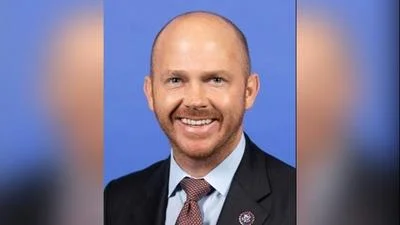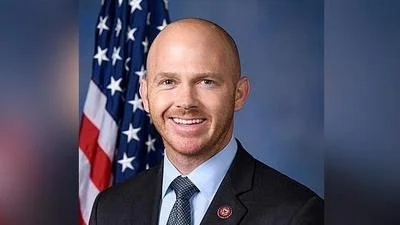J. Dan Walters, the CEO of Credit Central LLC | South Carolina Board of Financial Institutions
J. Dan Walters, the CEO of Credit Central LLC | South Carolina Board of Financial Institutions
Though legislation aimed at curbing predatory lending practices – but which may actually restrict installment lenders’ marketing efforts – was not approved on its first pass in the South Carolina Senate, one of the bill’s leading critics anticipates it will reappear in one form or another during the next legislative session.
In Senate Bill 910, Dan Walters, the CEO of Credit Central LLC in Greenville, recently told the Greenville Leader it was “poorly written and severely flawed, for several reasons,” before elaborating on his rationale.
“(1) It excluded banks and credit unions under the guise that these entities are heavily regulated by federal law. Fact is, installment lenders abide by the same federal laws as banks and credit unions, 18 such laws to be exact, except for those directly related to depository institutions. (2) The bill contained marketing restrictions for covered entities (banks & credit unions EXCLUDED) based on census tract data essentially promoting ‘redlining’, putting creditors in direct conflict with the federal laws previously mentioned,” Walters said.
“(3) The alleged intent of this bill was to restrict ‘Predatory Lending’ but offered no action to do such toward the highest-risk credit models in the state, namely title loans and certain credit union secured revolving accounts. The real purpose of the bill was to eliminate the marketing of safe, transparent, affordable installment loans, therefore allowing credit unions the untethered ability to solicit and transfer unsecured installment debt to their secured revolving credit card accounts that churn interest, in many cases for years. (4) The introduction of this bill via an Ad-Hoc Subcommittee with a stated pre-determined outcome of voting favorably to the full committee, along with strong support from the Self Help Credit Union Lobbyists, discredited this legislation from the very beginning.”
Walters had previously spoken out against the bill, arguing it will greatly diminish his lending business in favor of credit unions and banks, and also violate federal law by detracting from its ability to offer credit to all customers.
Another core component of Walters’ opposition to the bill was that, if it passed, there would be a detrimental impact on small-dollar credit access for South Carolina residents, especially those classified as low-income or high-risk.
About 45 percent of South Carolina residences fall under the “low income” category in S-910. If the bill were passed, lending businesses like Walters’ would be disallowed from sending marketing materials to residents living in those areas. Such a prohibition would potentially run afoul of the Equal Credit Opportunity Act of 1974.
In an op-ed published in the Post and Courier, Walters argued that the bill is flawed and would actually expose vulnerable citizens to predatory practices and imposes unnecessary restrictions on installment lenders, limiting the availability of safe credit to low-income households.
Stephen Gilchrist, the Chairman and CEO of the South Carolina African-American Chamber of Commerce, commented in Palmetto State News in March that S-910 could limit access to credit for South Carolinians, including members of his organization.
Though Walters said he couldn’t speak to the possibility of Gilchrist’s remarks influencing South Carolina lawmakers, he seconded Gilchrist’s points.
“His concerns are real, and they should absolutely be considered,” Walters said.
Walters also raised two questions that he feels should be asked about the bill.
“If S. 910 is such a good piece of legislation that truly seeks to restrict/eliminate predatory lending, then why would we exclude anyone? [And] why wouldn’t banks & credit unions be able to comply with the mandates of this bill?” according to Walters.
Walters had previously testified at two previous hearings on S-910.
State Sen. Tom Davis (R-Beaufort) is the main sponsor of S-910, now out of the Senate Committee on Labor, Commerce and Industry after a Feb. 7 hearing – where it had been introduced via a special subcommittee, instead of through the standard committee process.
Self-Help Credit Union and the Center for Responsible Lending are behind the restriction to installment lenders’ marketing efforts as defined in S-910. Those groups have reportedly received over $380 million in federal grants and loans since 1996, while lobbying for increased regulations on lenders.



 Alerts Sign-up
Alerts Sign-up